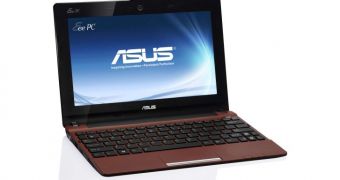The notebook market continues on its slow descending path, as fewer people go on buying them, due to several reasons. There isn't an easy solution to this perceived problem, but notebook makers are trying whatever they can.
Windows 8 was considered the bright new light of the mobile PC market for a short while, and the light of the PC market as a whole really.
Now, though, with Surface sales almost nonexistent, it is clear that the new operating system from Microsoft isn't the wonder drug everyone hoped for. In fact, Windows device sales plummeted 21% this month alone.
Thus, with tablets capable of doing almost everything laptops can, there isn't much to differentiate between the two product types besides the form factor.
One might even say laptops have a disadvantage in their lack of touch support. Yes, there are some notebooks with touchscreens, but not many.
Come 2013, this will change, according to a report from Digitimes. Acer, ASUS, Lenovo, HP, Samsung, all will add touch panels to their designs.
Generally, they expect 10-15% of all notebooks shipped in 2013 to have touch panels, since Windows 8 won't work at its best without one.
Panel makers are a bit more optimistic and think 20% of all notebooks shipped in 2013 will use the thing.
It is clear that PC makers still expect Windows 8 to reshape the market, even if it hasn't shown signs of doing so during the past four weeks.
It is a somewhat baffling state of affairs, one might say. On the one hand, one month isn't quite enough to judge the potential impact of a new release. On the other hand, this is the winter holiday shopping season, so there should have been some visible effect, however slight.
Instead, we have the Surface tablet failing to sell and Android-powered slates keeping to their game of slowly eroding the market share of Intel or AMD-powered notebooks.

 14 DAY TRIAL //
14 DAY TRIAL //